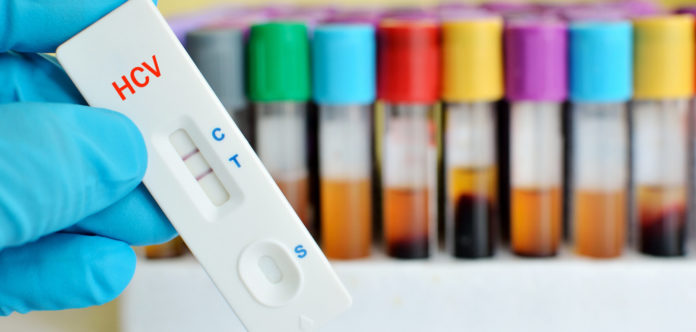
Have you been treated for hepatitis C virus (HCV) recently? If so, it may be time to get retested for the virus, according to a global meta-analysis presented at the 11th International AIDS Society Conference on HIV Science (IAS 2021). The analysis found that gay and bisexual men, also referred to as men who have sex with men (MSM), living with HIV had the highest rate of hepatitis C reinfection globally, regardless of injection drug use.
PhD candidate Samira Hosseini-Hooshyar, of the Kirby Institute at the University of New South Wales in Australia, and colleagues gathered all studies of hepatitis C reinfection among people living with HIV from five databases of scientific literature as well as relevant medical conferences. This yielded 3,368 results, but after accounting for duplicate articles and reviewing the studies for eligibility, they identified 37 studies with 13,009 person-years of follow-up to be included in this analysis. Twelve were clinical trials, nine were prospective observational studies and 16 were retrospective cohort studies.
Twenty-two studies looked at the use of direct-acting antiviral therapy, eight looked at the use of interferon-based treatment and seven looked at both. The studies also differed in how they defined HCV reinfection, with nine diagnosing it as recurrent detectable viral load following a sustained virological response and four identifying reinfection based on HCV genotypes that were different from the strains of the original infection. Most used a combination of methods.
Reinfection rates varied tremendously by study, but overall, there were 3.85 hep C reinfections per 100 person-years. Reinfection seemed stratified, in part, by injection drug use. People other than gay and bi men who’d ever injected drugs but weren’t doing so now had the lowest rate of hep C reinfection, at 3.29 per 100 person-years. Non-MSM who’d injected drugs recently had close to the highest reinfection rate, at 5.49 reinfections per 100 person-years.
But the highest rate was for gay and bi men overall, who saw a reinfection rate of 5.89 per 100 person-years (injection drug use didn’t increase these odds). MSM living with HIV who’d never injected drugs saw reinfection rates of 4.75 per 100 person-years, while HIV-positive gay and bi men who’d ever reported injecting drugs had a reinfection rate of 4.13 per 100 person-years.
But reinfection rates dropped with longer study follow-up, indicating that the risk for reinfection was most likely soon after treatment.
“Continuous education and harm reduction services are required to reduce reinfection risk following treatment, particularly among HIV-positive MSM,” wrote Hosseini-Hoshyar and colleagues. “Regular posttreatment HCV assessment is required to detect and treat early reinfection, particularly in populations with recent HCV infection.”
Click here to read the study abstract.
Click here for more news about hepatitis C.
Click here for more reports from IAS 2021.








